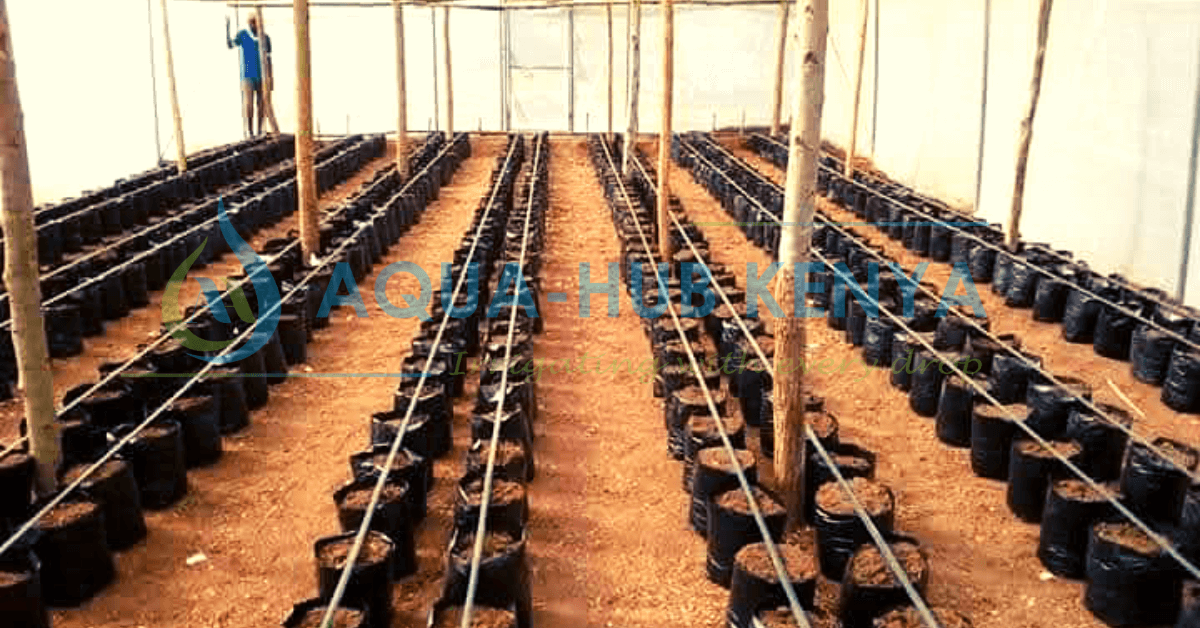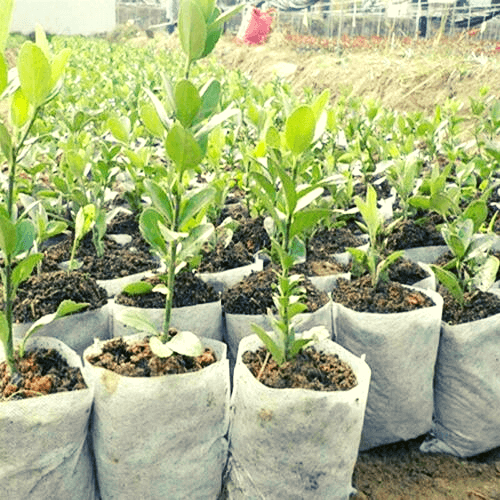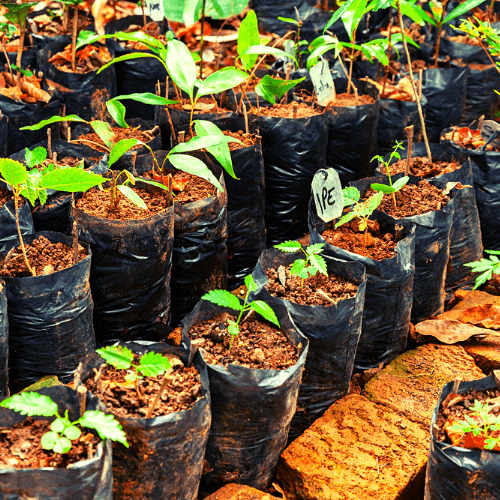Planting Bags in Kenya

We have planting bags in Kenya made of non-woven materials. They have been authorized by NEMA for the growth of seedlings. They come in many sizes. If the minimum order requirement is met, a bespoke size may be manufactured for you, our esteemed customer. Farmers all around the nation use them to grow seedlings. Very reasonably priced and environmentally friendly. We also provide planting bags of excellent quality at prices that are quite reasonable.
What are planting bags in Kenya?
Planting bags are plastic bags that are filled with soil or other planting media and are used to grow crops. These bags can come in various sizes, from small bags for individual plants to larger bags for multiple plants. They are widely used for commercial and home gardening. Particularly for crops that require deep soil such as tomatoes, peppers, eggplants, and cucumbers.

The benefits of planting bags are that they can be used in small spaces. They are also easy to move around, they are reusable and they can help to conserve water. They also provide a controlled environment that can be modified to suit the needs of the crop. In Kenya, planting bags are commonly used in urban gardening. They are also used in areas where the soil quality is poor, or where the water is scarce. They are also used in small scale farming, and in greenhouses.
Which plants are grown in planting bags in Kenya?
In Kenya, a wide variety of plants can be grown in planting bags, including:
- Vegetables: Many types of vegetables can be grown in planting bags. Including tomatoes, peppers, eggplants, cucumbers, lettuce, broccoli, and many others.
- Fruits: Some types of fruits can also be grown in planting bags, including berries, melons, and citrus fruits.
- Herbs: Many herbs can be grown in planting bags, including basil, parsley, cilantro, and mint.
- Flowers: Many types of flowers can also be grown in planting bags, including marigolds, zinnias, petunias, and many others.
- Ornamentals: Many ornamental plants can be grown in planting bags, including succulents, cacti, and house plants.
- Grains and cereals: Some types of grains and cereals can be grown in planting bags. Including rice, wheat, corn, and barley.
- Trees and shrubs: Some types of trees and shrubs can also be grown in planting bags. Including fruit trees, ornamental trees and shrubs.
It’s important to note that the specific crops that can be grown in planting bags will depend some factors. The factors include the climate, soil conditions, and other factors in your area. Additionally, the choice of planting media, the crop. And the location of the farm will also affect the properties of the planting bags. And will also determine the success of the crop growth.
What are the benefits of planting bags?

- Space-saving: Planting bags can be used in small spaces, making them an ideal option for urban gardening and small-scale farming.
- Reusable: Planting bags can be reused multiple times, making them a cost-effective option for gardening and farming.
- Portable: Planting bags are lightweight and easy to move around, making them an ideal option for small spaces or for farmers who need to move their crops to different locations.
- Water conservation: Planting bags can help to conserve water, as the soil in the bag can be kept moist for longer periods.
- Soil quality: Planting bags can be filled with a variety of planting media, including soil, compost, and coco peat, which can improve the soil quality and provide optimal growing conditions for the crop.
- Climate control: Planting bags can be used to create a controlled environment for the crop, which can be modified to suit the needs of the crop, such as temperature, humidity, and light levels.
- Disease and pest control: Planting bags can aso provide an isolated environment for the crop, which can help to control the spread of diseases and pests.
- Root development: Planting bags can provide a deep soil environment that is conducive to root development, which is beneficial for crops that require deep soil, such as tomatoes, peppers, eggplants, and cucumbers.
- Cost-effective: Planting bags are cost-effective as they can be reused multiple times, they don’t require much space and can be used in any location.
- Versatility: Planting bags can be used to grow a wide variety of crops, and can be modified to suit the needs of the crop, making them a versatile option for gardening and farming.

I epildike yo purchase these
what sizes are you looking for?